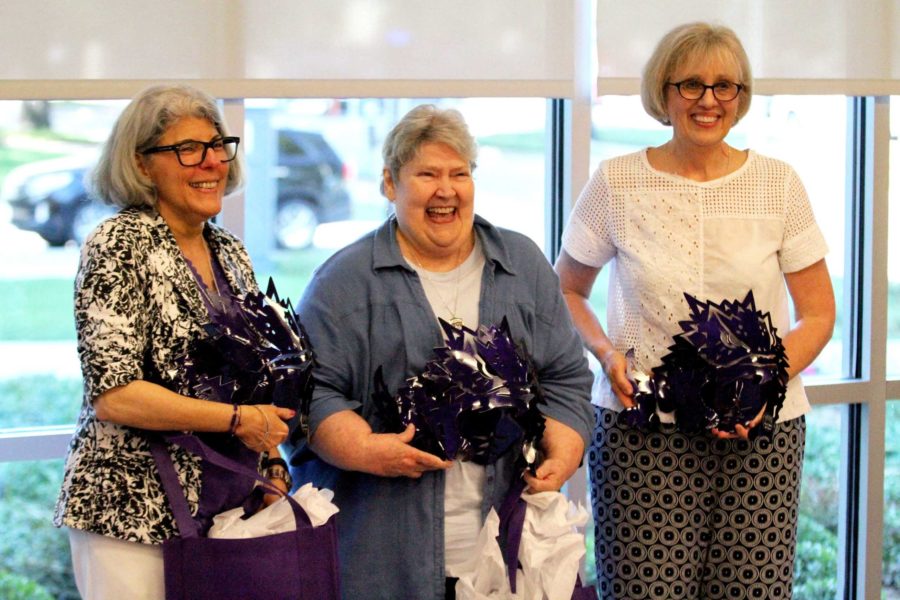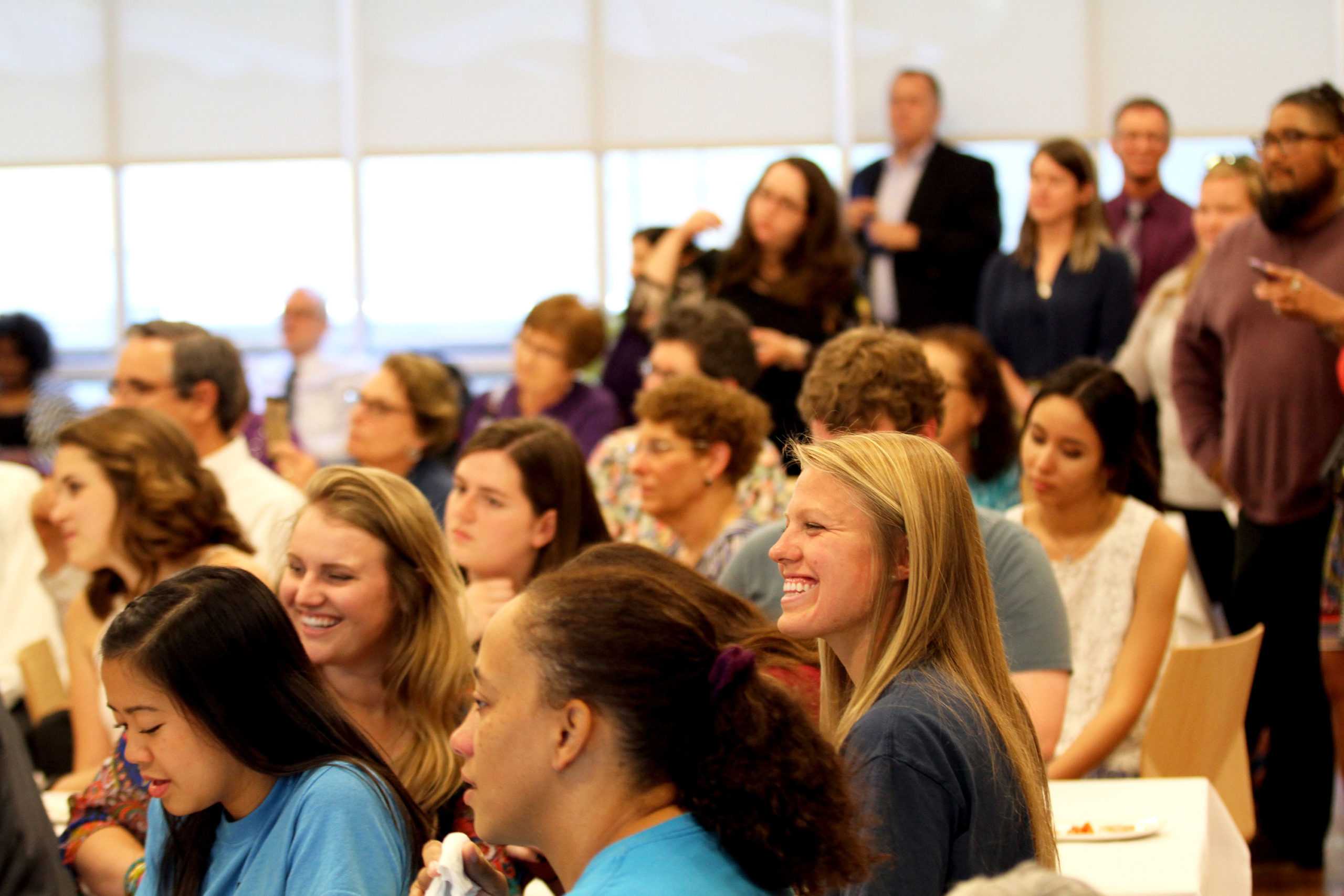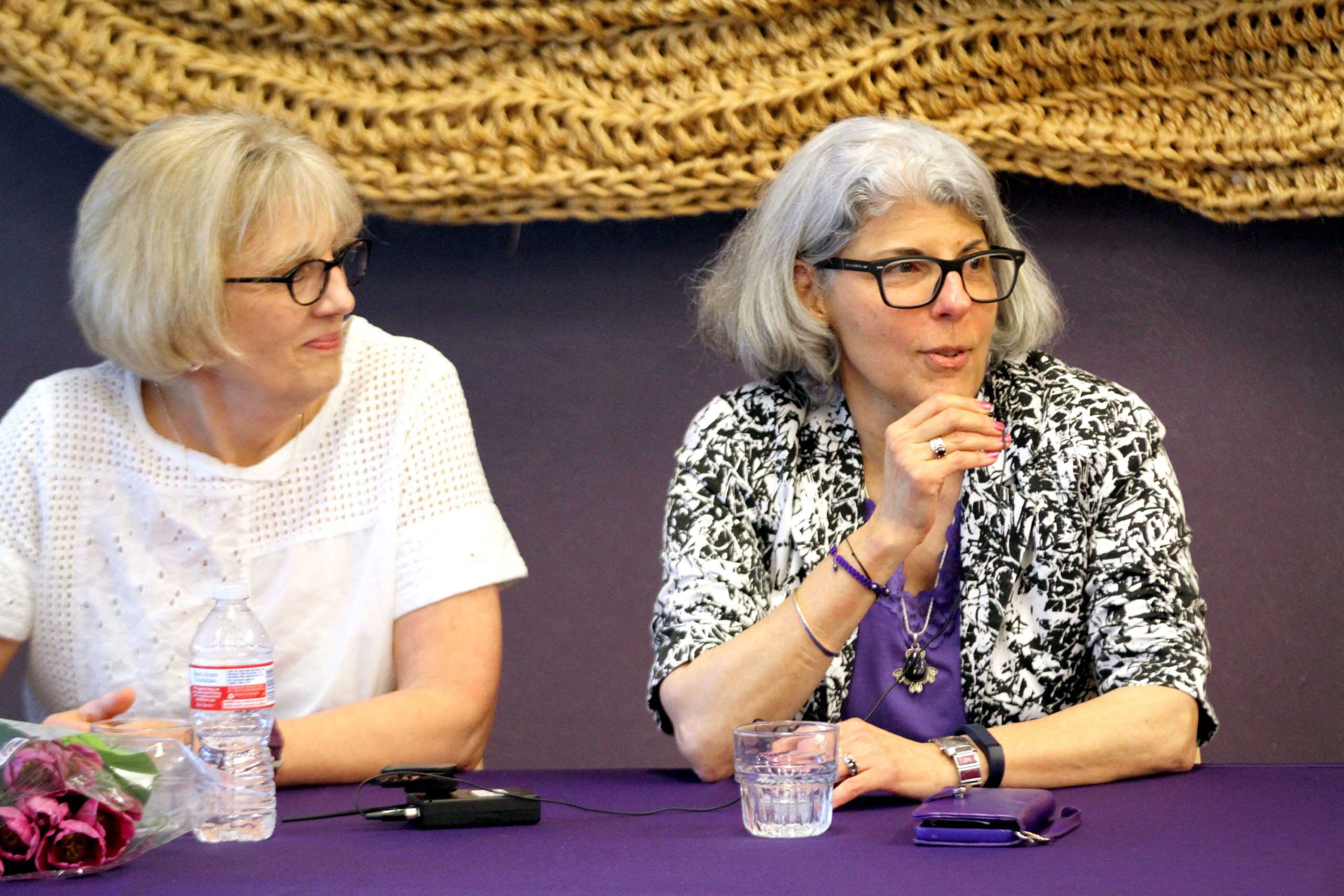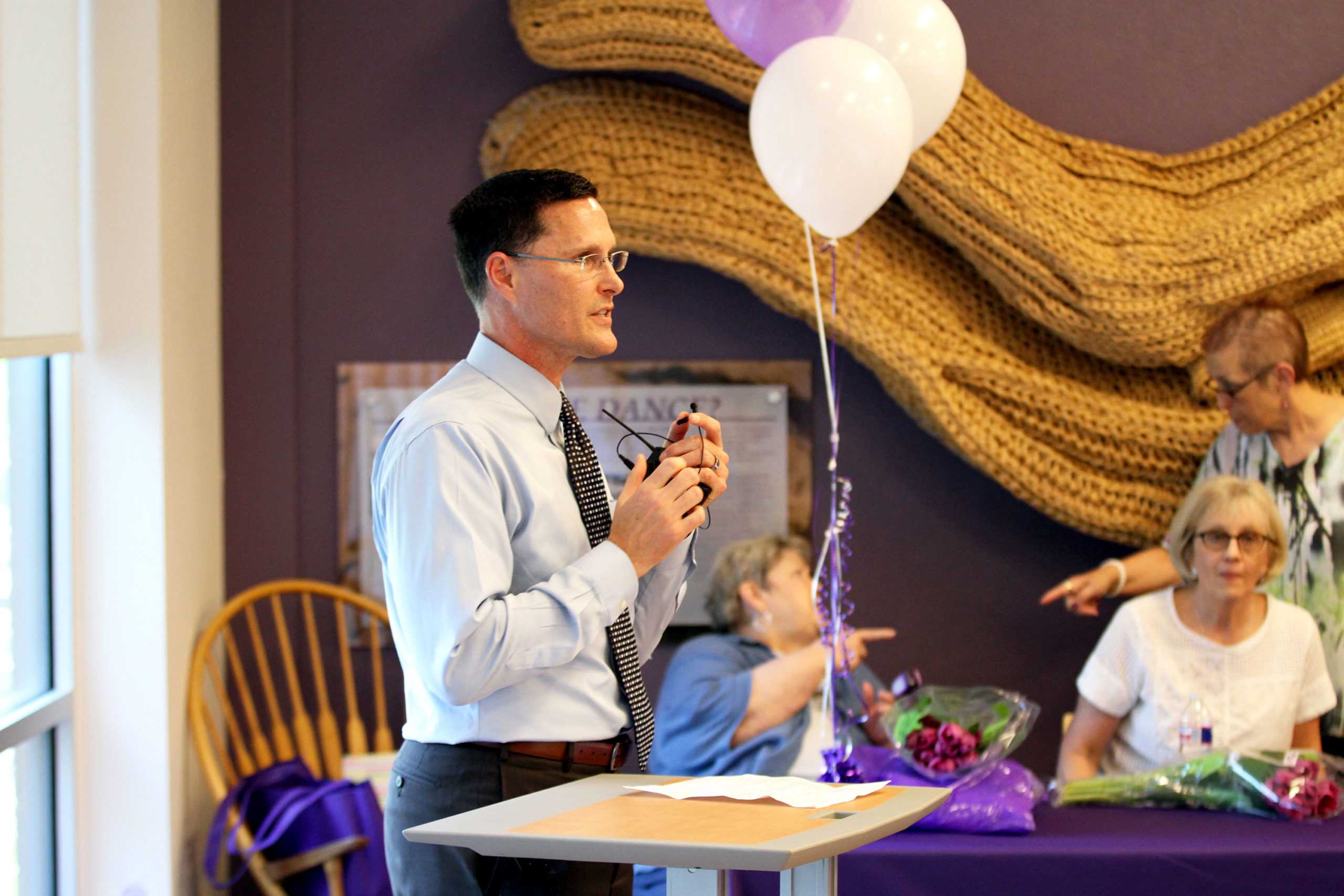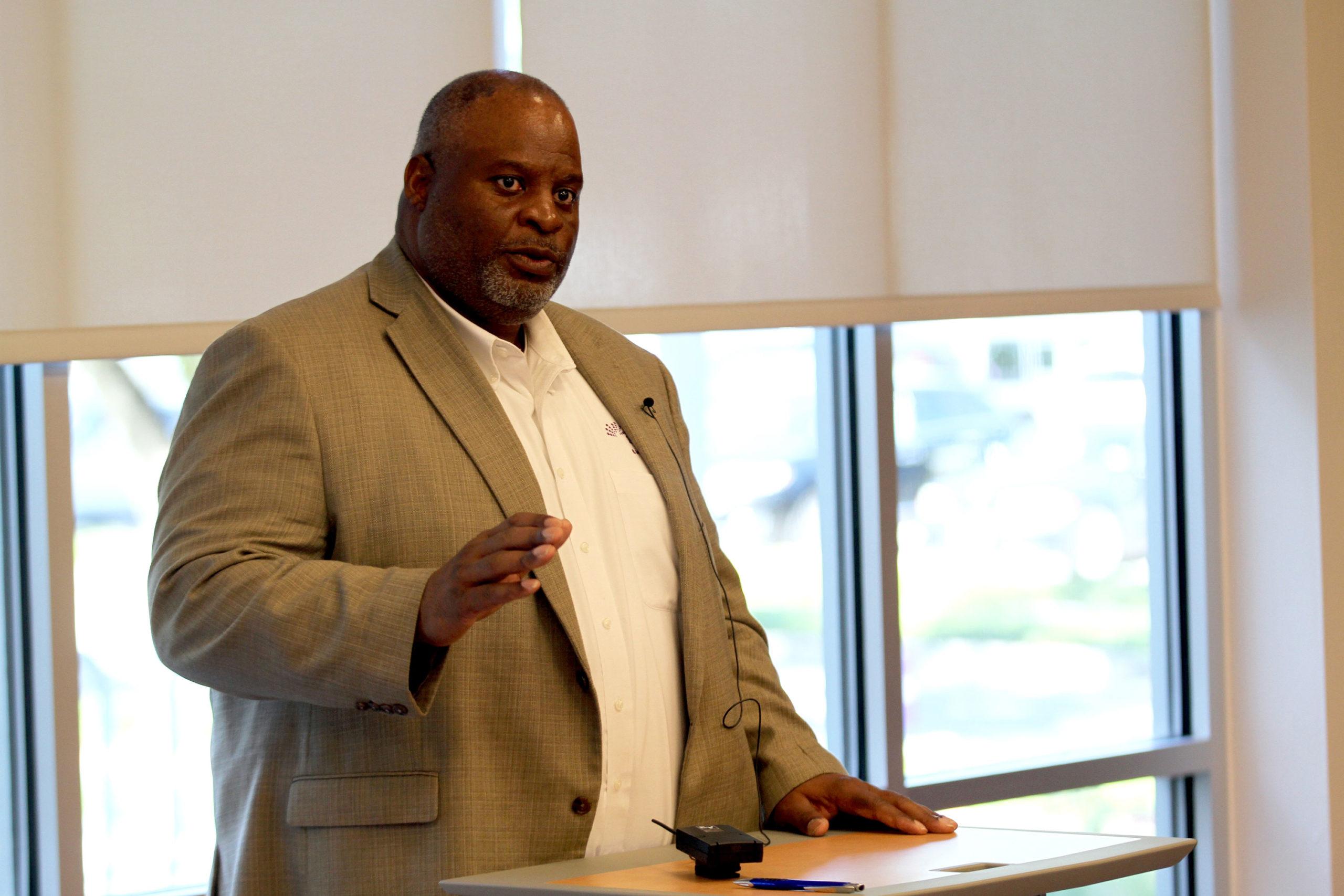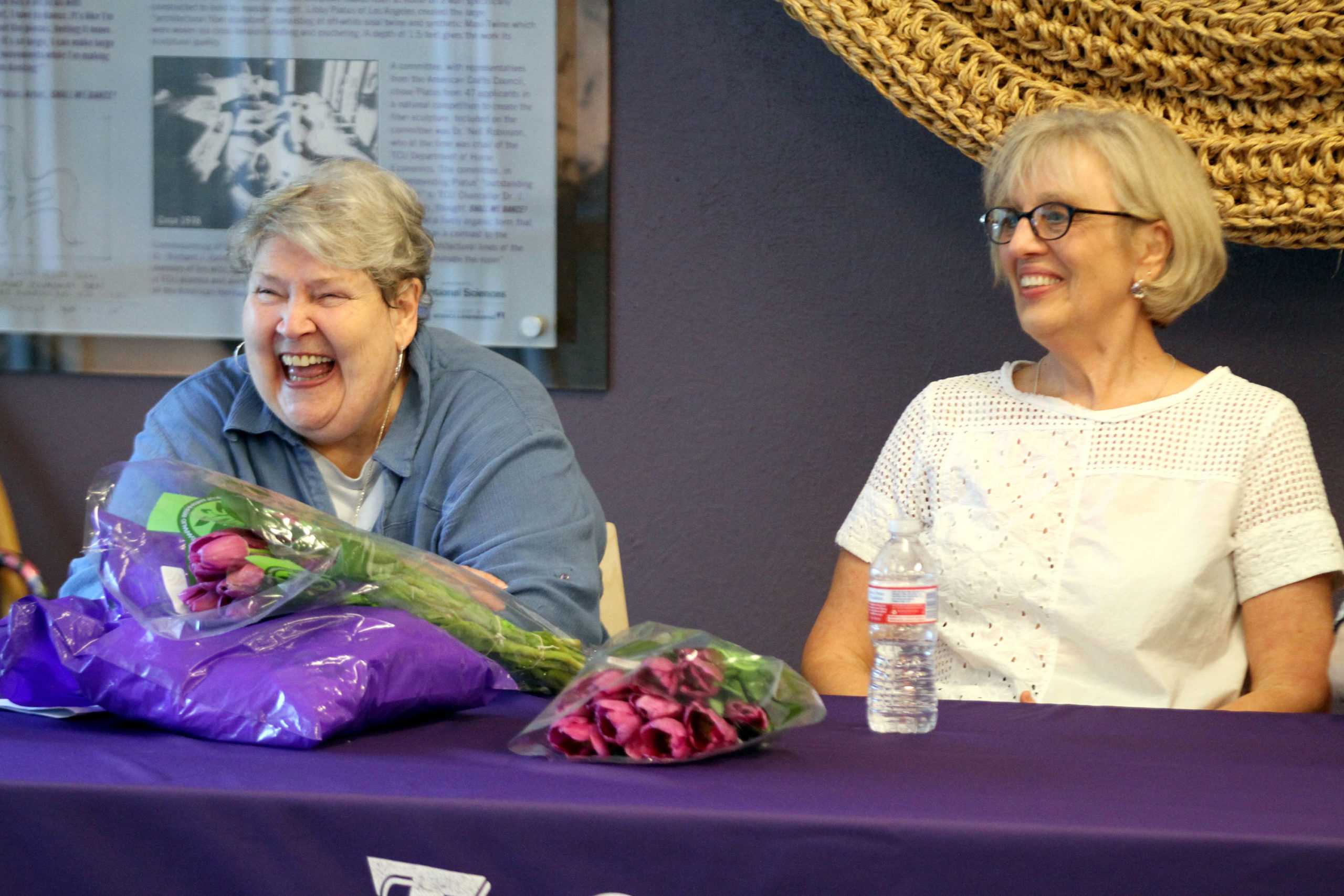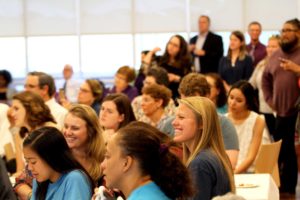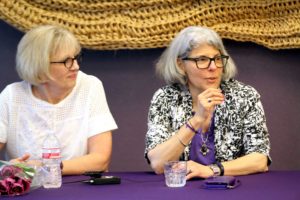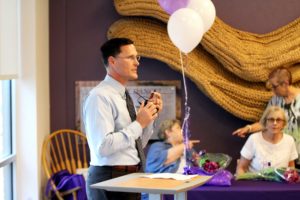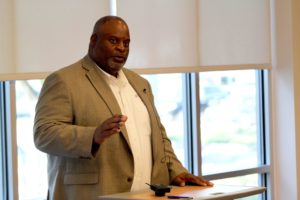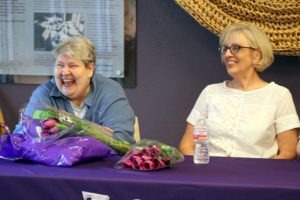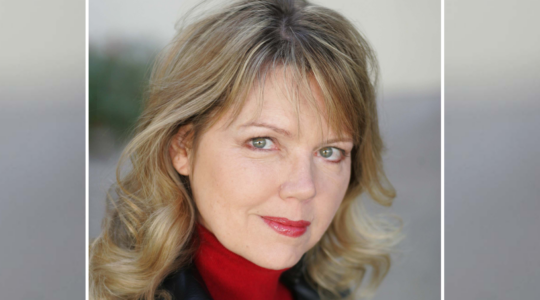In 1977, Linda Moore became the second employee hired by the TCU social work program.
She will retire just short of the 40-year milestone, along with almost half of the department of social work.
“Part of it is energy,” Moore said. “For me, I am very excited to do things, but I don’t always have the energy. It’s part of the aging process that just pisses me off.”
Moore, a professor and director of the Bachelor of Social Work (BSW) program, is one of three tenured faculty members retiring from the department this year. Associate Professors Tracy Dietz and Harriet Cohen are also leaving the department.
The three have worked at TCU for a combined 74 years: Moore (39), Dietz (24) and Cohen (11).
“It’s a big loss for our department as far as seniority, wisdom, history and experience,” said David Jenkins, chair of the department and director of the Master of Social Work (MSW) program. “Some people could say it’s a fresh start for the department, but it comes at a cost where you lose a lot of experience.”
An impact all over
Moore was always a huge sports fan.
She remembers the year before she came to TCU — the football team went 0-10. The Frogs went 1-9 her first year in the social work program.
“Students were cheering ‘2-4-6-8, score before we graduate,’” Moore said. She has had season tickets every year since she started in 1977.
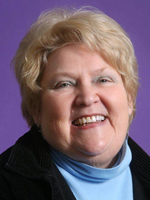
Moore started the academic services program in the athletics department during the early 1980s. She said she worked with multiple student athletes with learning disabilities who hadn’t been tested and weren’t on track to get a degree.
“I wrote to the provost and athletics about my anger,” she said. “The provost called me and said, ‘What are you going to do about it?’”
Even after she retires, Moore said she will continue to stay involved with the academic side of TCU athletics.
“It’s a place that is near and dear to me,” she said. “It’s a place where I believe in access to education.”
The academic services program isn’t the only on-campus change with Moore’s fingerprints on it.
In the early 90s, Moore instituted a project for her Macropractice class: change university policy.
“My greatest achievement: students got Martin Luther King Jr. Day as a holiday,” Moore said. “No one knows they did it, but it was a class project. They changed TCU policy in three months.”
Study abroad experiences
Dietz and her husband had a 10-year plan for retirement. It took 11 because of the 2008 recession.
“We knew we wanted to retire early when we were still young,” she said. “How we decided to do what we’re going to do is really a TCU story.”
Dietz started at TCU in 1992, working out of a “temporary building” that was more like a trailer, she said. A few years later, she took her first group of students on a summer study abroad trip to Guanajuato, Mexico.
During the trips, Dietz led students in community service in nursing homes, impoverished rural communities, schools and other areas of need. She said she “absolutely fell in love with the city and the people.”
In 2010, Dietz and her husband decided to move there after retirement. They bought a house that year.
Dietz already has a sewing machine in the house.
“I learned quilting from my grandma when I was about 10 years old,” she said. “I’ve just always made quilts.”
A long drive
For Cohen, it was the commute.
For 11 years, she has made the drive from Richardson to TCU. But in 2010, she was in a car accident and suffered a head injury.
“I have made great progress, but the drive is really hard on me cognitively,” Cohen said. “I really had never expected to retire this early.”
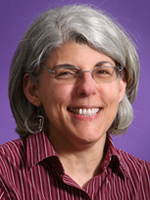
Cohen was an associate professor and director of the social work program at the University of North Texas before coming to TCU in 2005. One of the deciding factors in her decision to move was that TCU offered her domestic partner benefits.
“Coming here as a Jewish lesbian and not sure exactly how I was going to be received…the whole environment here was so open and friendly, from the chancellor on down,” she said.
But Cohen’s partner died in 2014, making her commute from Richardson more difficult, she said.
“That extra motivation of making the drive so that I could cover her…the benefit was no longer a motivating factor,” she said.
Cohen said she found a passion in working with older adults. Among other accomplishments, she helped create the healthy aging minor at TCU.
The decision to actually retire came to her last year — at a ceremony for the university’s retirees.
“The thought went through my mind of, ‘Wow, I’m 63 years old, and this is the first time that I have worked for 10 years at the same place,'” Cohen said.
Working with students is one of the main aspects of TCU that Cohen will miss, she said.
“There are many students who over the years have given gifts to me…touched me professionally and personally by their struggles, by their questions, by their life experiences,” she said. “And that will be a part of my life forever.”
A fresh start
The department of social work will look a lot different come next fall, but Jenkins said it was just a coincidence that Moore, Dietz and Cohen decided to retire the same year.
“It just happened that those three lined up,” he said.
The department currently touts eight faculty and staff members, with an additional position vacant. Jenkins said the department is working on filling the vacancies before next fall.
“I think it’s a larger problem around academia that we have a lot of [people retiring], specifically in my profession,” Jenkins said. “There’s a lot of positions available.”
A record 49 faculty and staff retired from TCU last year, according to TCU Human Resources. This year’s total isn’t as high, but that’s not the case for social work.
“I still really believe it is my responsibility to turn things over,” Dietz said. “I never wanted to be one of those people who just worked until I was 95 and people were like, ‘Why is she still here? Her notes are old and yellow, she’s still using the overhead projector.’”
Aesha John, an assistant social work professor, will become the new director of the BSW program. Nada Elias-Lambert, also an assistant professor, will take over as head of the MSW program.
“What I hope and I know is true for us: we’ve left a legacy,” Moore said.

